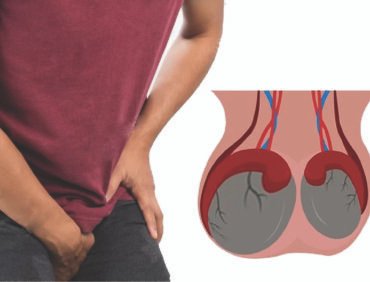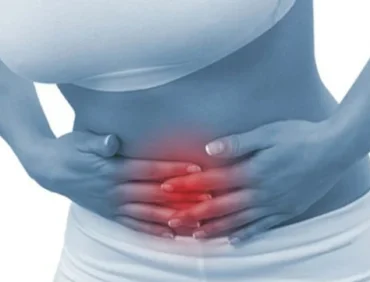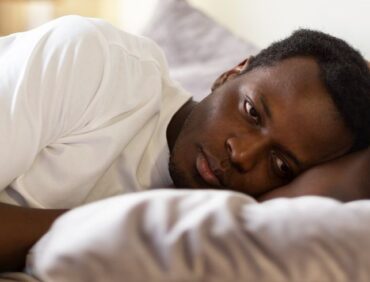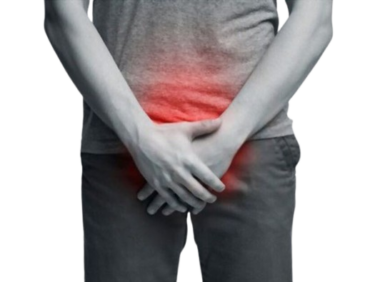Sex is a normal part of human nature. Having enjoyable sexual experiences is a beautiful way to express your love and affection to someone you love. However, lack of sex drive for a long period of time may cause concern.
Low sex drive, also known as low libido, refers to a decrease in sex desire or interest. This can also affect the fertility of a man.
What Causes Low Sex Drive?

Low Testosterone
Testosterone is an important sex hormone in men. It’s responsible for typical male characteristics, such as facial hair and body muscle. This hormone also helps maintain sex drive and sperm production.
The testicles produce testosterone. When your testosterone levels decrease, your desire for sex also decreases. Normal testosterone levels will vary.
However, according to guidelines from the American Urological Association (AUA), adult men are considered to have low testosterone, or low T, when their levels fall below 300 nanograms per deciliter (ng/dL) .
Low testosterone is common in older men, but it can occur in younger men as well. For younger men, chronic diseases such as high blood pressure, type 2 diabetes, and heart disease can cause a drop in testosterone levels.
Some men with low testosterone experience a drop in libido while others lose interest in sex completely.
Stress and Sleep Disorders
Stress causes the body to produce cortisol, a hormone that acts as an internal alarm system. Cortisol not only causes blood vessel constriction, which contributes to ED, but it can also induce a sharp drop in testosterone levels.
Stress is hard to avoid. Relationship problems, divorce, facing the death of a loved one, financial worries, a new baby, or a busy work environment are just some of the life events that can greatly affect the desire for sex.
Insomnia and other sleep abnormalities are also linked to stress, which can increase the risk of fatigue and leave you less interested in sex.
A study in the Journal of Clinical Sleep Medicine found that nearly one-third of the men who had severe obstructive sleep apnea (OSA) had reduced levels of testosterone.
Side Effect of Medication
Taking certain medications can lower testosterone levels, which in turn may lead to low libido.
These may include entire classes of drugs that can affect a man’s sex drive to varying degrees. Common drug classes include:
- Anticonvulsants
- Antidepressants
- Antipsychotics
- Beta-blockers
- Benzodiazepines
- Statins
Talking to your doctor can help you learn more about the steps you can take to address this concern.
Depression
Depression can not only cause a lower sex drive, but it may also be the outcome. People with depression experience a reduced or complete lack of interest in activities they once found pleasurable, including sex.
Furthermore, while antidepressants are helpful in treating depression, they might cause sexual desire issues.
Low libido may result as a side effect of some antidepressants, including:
- serotonin-norepinephrine reuptake inhibitors (SNRIs), such as duloxetine (Cymbalta)
- selective serotonin reuptake inhibitors (SSRIs), like fluoxetine (Prozac) and sertraline (Zoloft)
Talk to your doctor if you’re taking antidepressants and you have a low libido. They might address your side effects by adjusting your dose or having you switch to another medication.
Chronic Illness
This can directly interfere with hormonal, neurological, or vascular functions central to the male sex drive. When you’re not feeling well due to the effects of a chronic health condition, such as chronic pain, sex is likely low on your list of priorities.
Certain illnesses, such as cancer, can reduce your sperm production counts as well.
Chronic health conditions can lead to low sex drive in men for a variety of reasons. Some conditions may directly impact libido. Certain medications to treat health conditions can decrease sex drive.
Relationship Problem
Sometimes, loss of sex drive could be as a result of certain relationship problems such as:
- being in a long-term relationship and becoming overfamiliar with your partner
- loss of sexual attraction
- unresolved conflict and frequent arguments
- poor communication
- difficulty trusting each other
- physical sexual problems
Lifestyle Factors
There are lifestyle factors that may contribute significantly to low libido in men.
- Alcohol and drug use: Excessive or chronic drinking can result in reduced testosterone levels.
- Too much (or too little) exercise: Frequent and high intensity exercise is linked to a lower libido. Too little exercise can also lead to decreased libido in a variety of ways.
- Obesity: Extra weight directly impairs metabolism and hormone function, resulting in significantly reduced total and free testosterone. By contrast, exercise and weight loss not only enhance mood and energy levels but also improve sexual function and self-image.
- Smoking: According to a 2012 study from the University of Texas Austin, smoking directly increases the risk of erectile dysfunction and indirectly impairs sexual arousal.
Erection Problems
Erectile dysfunction (ED) can not only affect the ability to have intercourse but also how a man feels about his ability to perform. There are many options available to treat ED. You can also consider natural remedies with zero side effects.
Side Effects of Low Sex Drive
Due to low sex drive, a man may experience physical and emotional side effects which can be very unsettling.
Low sex drive may cause a man to experience anxiety around sex. This can lead to tension and conflicts between him and his partner, which may in turn lead to fewer sexual encounters and more relationship issues.
Failure to perform due to low libido can trigger feelings of depression, self-esteem issues, and poor body image.
How to Naturally Boost Low Sex Drive

Here are some of the best natural ways for males to increase their libido to enjoy good sex.
Get Good-Quality Sleep and Regular Exercise
Good sleep can improve a person’s overall mood and energy levels, and some research also links sleep quality to libido.
Exercise is known to reduce stress and increase libido. Yoga, swimming, running and exercise classes are great ways to let off steam and reconnect with your body.
Stress Management
A study of veterans with post-traumatic stress disorder (PTSD) found that the stress disorder increased their risk of sexual dysfunction more than threefold.
Stress management techniques, such as breathing exercises, meditation, and talking to a therapist may help. educing your stress levels, you can improve your sex drive. Meditation and relaxation are a great way to unwind at the end of a busy day
Relationship Counseling and Sex Therapy
Sexual desire is complex, with both psychological and physical components.
Therapy is an effective strategy for increasing low libido. Individual counseling can help address negative views about sex, self-esteem, and secondary causes of low libido, such as depression and anxiety.
Relationship counseling can help some people work through factors affecting their sexual desire.
Quit smoking
Smoking cigarettes can have a negative impact on a person’s cardiovascular system. Good heart health is important for good sexual functioning.
People who smoke cigarettes may find that their energy levels and sex drive increase after stopping.
Include Aphrodisiacs to your Diet
Foods considered aphrodisiacs are those that aim to stimulate the love senses (sight, smell, taste, and touch).
It is well-documented that some foods are believed to increase sexual desire, and this dates back as far as Greek mythology. Avocado, bananas, raw oysters, chocolate, figs and soy are all thought to contain vitamins and minerals that can increase libido.
The bottom line is, according to experts, foods that are proven aphrodisiacs are part of a diet that contributes to healthy blood circulation, can help balance hormones, and enhance vitality, all necessary to increase libido.
Use of Natural Supplements
There are a number of natural supplements that help to increase libido.
Maca root has been shown to increase sexual desire, and plenty of people swear by it. Vitamin E, Zinc, ginseng and horny-goat weed are other popular natural supplements used to increase libido.
Be sure to speak to your healthcare practitioner before beginning a new nutritional supplement, to make sure it’s suited to your health needs.
Start your journey to boost your low libido today by contacting us.
Summary
Low libido is a complex issue, with relationship, psychological, and physical components. Understanding the cause can help a person find the best treatment.
If low libido is affecting your relationship, avoid directly blaming yourself or your partner. Instead, have an open and honest conversation with your partner about how you’re feeling.
If you’re concerned by your low libido, talk to your doctor and also consider the methods stated above.
I hope you found this information helpful!
Stay healthy and never give up!
Plan B Wellness Limited
WhatsApp: +2348099666658, +2348099666648
Call: +2348099666650
Email: consult@maleinfertilityremedy.com
Instagram: @maleinfertilityremedy
Facebook Page: All About Male Infertility







[…] Imbalances, such as low testosterone levels, can result in low sex drive or erectile dysfunction.Furthermore, chronic or ongoing low testosterone may lead to osteoporosis, […]